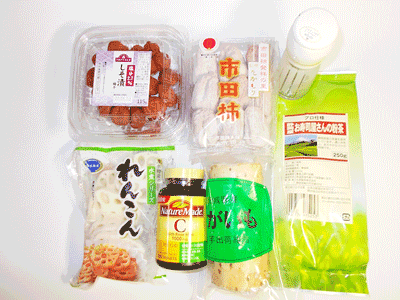|

iHPÖj

|
How to inactivate coronavirus(COVID-19 Measures 1),
Ingestion of
vitamins and minerals is important for COVID-19 measures (COVID-19 measures 4)
,
National guidelines for foods is necessary for improving immunity(COVID-19
measures 3) ,
Improve immunity (COVID-19 Measures 2),
Masks, goggles, hand washing, and alcohol disinfection are recommended
as measures against coronavirus, and the emphasis is on keeping the virus
out of the body. However, as coronavirus are spreading among so many people
and we can not detect from whom coronavirus has been spread, coronavirus
entering the body are becoming inevitable. From now on, we need
to consider how to inactivate viruses that have entered the body. At present,
there are no coronavirus-control ingredients confirmed, so the focus is
on finding ingredients that are resistant to viruses such as influenza.
1)Dried
persimmons
Hiroshima
University investigated whether coffee, green tea, persimmon, and their
polyphenols were effective against 13 types of viruses, including influenza,
bird flu, and norovirus. Only persimmon tannins were effective against all
viruses. In the case of norovirus, the virus remaining rate in persimmon tannin
was 10% or less, while the virus remaining rate in green tea exceeded 80%.
2) Green tea
Although the residual rate of the virus is higher than dried persimmon,
green tea is definitely effective in stopping the virus activity, and when
sencha tea leaves are ground with a sesame grinder and drink with tea,
more tea tannins is taken into the body.
3) Umeboshi
(Pickled Plums)
Umeboshi contains citric acid, malic acid and the like, and is well known
since ancient times for its sterilizing and antibacterial effects. However,
umeboshi usually contains 8-10% salt, so not much is recommended. However,
you will find low salt of around 3% which is a safer choice.
4) Yam
Hirosaki University and the Aomori Prefectural Environmental Protection
Center examined the effects of yams on anti-influenza virus. It turned
out to be Dioscorin A protein which effects anti-influenza virus. It
was found that the outer shell of the influenza virus that came into contact
with the extract of yam became unclear. This effect suggests that a very small
amount of yam can prevent influenza infection
5) Vitamin C
The effects of vitamin C include maintaining the health of the skin and
mucous membranes, increasing resistance to diseases, and antioxidant effects.
Doctors recommend 100mg, 500mg, and 1000mg doses, and Dr. Pauling, who
won the Nobel Prize in Chemistry, recommends 2000mg. Vitamin C stays in
the body for a short time, so it is desirable to take it several times
a day.
6) Lotus root
Immunity-boosting foods: Effective foods for boosting immunity for mucous
membranes such as nose, mouth, small intestine, and large intestine by
ingesting mucin from sticky foods such as okra, natto, mozuku and mekabu,
yam, toro kelp, and lotus root. It increases the amount of mucus that covers
it to prevent bacteria, viruses, etc. from coming into direct contact with
the mucous membrane, thereby preventing their invasion. If you chew the
gum for a long time, saliva will come out and the mucous membrane will
be moisturized, and at the same time an antibacterial substance will come
out. Chewing will increase the blood flow of the brain and help activate
the brain. Ingestion of lipopolysaccharide from 100% buckwheat, brown rice
(common in Nuka), mekabu(root of wakame seaweed), lotus root, etc., activates
macrophages and prevents saccharification to prevent diabetes. Mucin and
lipopolysaccharide are effective to improve immunity, so eating both of
them is important because it is mekabu and lotus root that can consume
both.
|
,Table of contents in English,
|
|
|